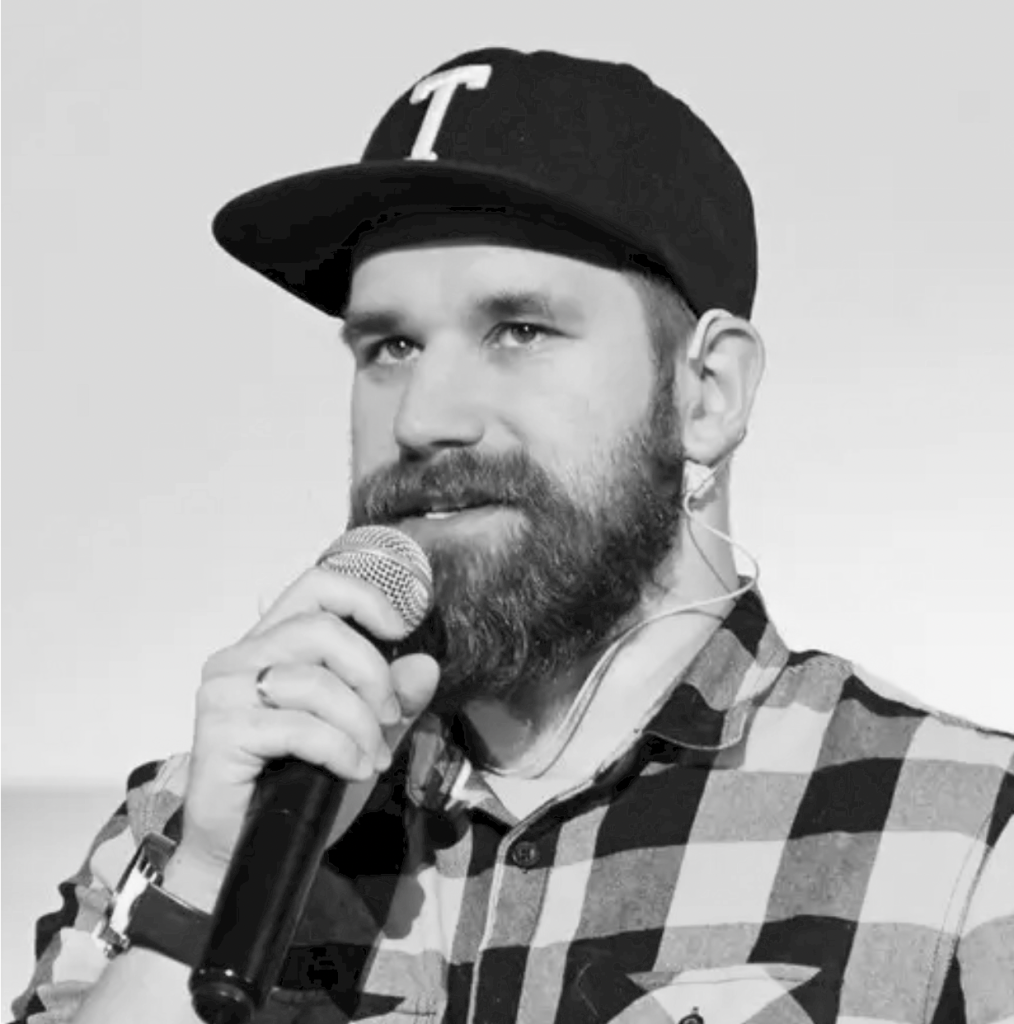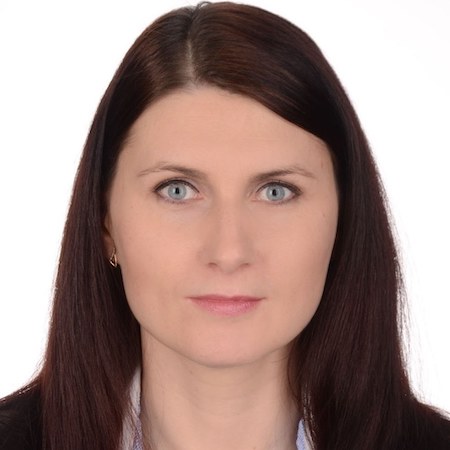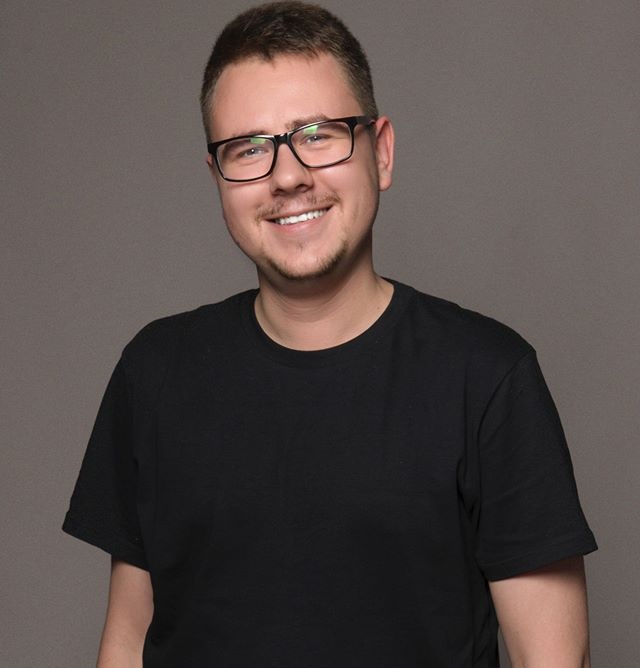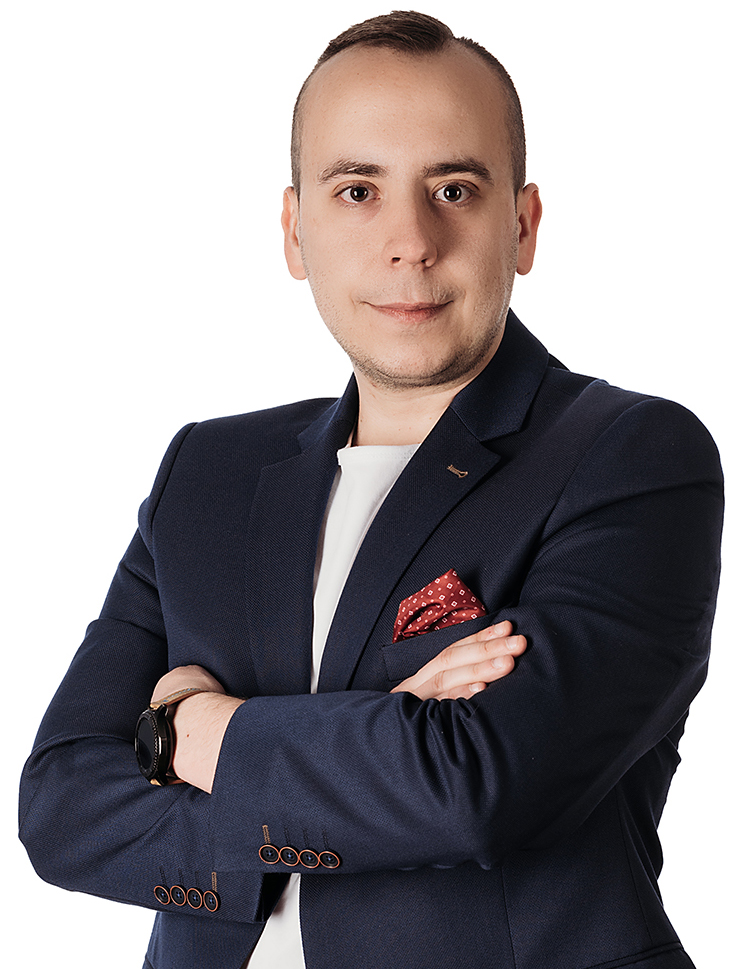What do you think will change in SEO and link building in the coming years? What do you think is to be expected and what impact will this have on our industry?
Originally seen on our Polish blog, Lukasz Suchy asks these question to experts related to the SEO industry in Poland. Check out their answers below!

Tomasz Stopka
Independent SEO expert at semurai.pl
In terms of link building, I don’t think there will be any big changes. More emphasis on quality, stronger use of AI and even more automation. I think that platforms facilitating the publication of sponsored articles, but also sites that are most actively involved in the whole process, will face some difficulties. Of course, I don’t want to scare anyone here! However, I think that this type of link acquisition may feel the most threatened due to the fact that it still works and gives results and at the same time directly plays on the nose with Google’s recommendations for Webmasters.
There will be a lot going on in terms of page optimization. I think quality will be more important than quantity. This was visible, for example, in the relatively quickly released update counteracting the content generated by the AI. Given the gigantic amount of content we are flooded with every day, it will be necessary to introduce some kind of cleaning and separation of content that is actually useful from those that only take up space in the search engine.
In general, I am far from expecting any revolution in the near future – evolutions and development of solutions known to us, yes. Revolution no.

Marta Gryszko
Infeo + Wake App
https://www.lexy.com.pl/blog/
I’ll answer a bit in spite, because I think that in SEO it’s hard to predict changes.
We have many experiences behind us that have shown us that our predictions are one thing, and Google’s actions – another. There have been periods when Google not only focused on punishing one specific target (e.g. content or links), but also used relatively transparent communication with webmasters, thanks to which we knew what to focus on. It was then easier to predict in which direction we should go or what the search engine will choose as its next target. Now, in turn, we are used to regular changes in the form of the so-called core updates, which are comprehensive updates and include multiple ranking factors at once.
As long as the search engine does not send messages, e.g. similar to the old ones, regarding the need to ensure a fast and device-friendly website, we will not be able to predict what changes the future will bring. It is enough for Google to publish any text or update the guidelines (initially, you will probably have to read “between the lines”), and we will know what trend we should follow. The only thing I would point out as quite likely is a return to analyzing the quality of content in terms of whether it is written by a human or by artificial intelligence. This time, however, it will not be as easy a task for the search engine as with the introduction of the Panda Update.
For me, the next year will certainly be based on further work on content and its promotion in the form of SEO and marketing activities … such SEO Content Marketing

Paweł Halicki
Head of SEO & WEB at InPost
In my opinion, what will be the legend of the future are Budgets, which is what I mean by that.
In the context of Google, the budget will be all activities improving website crawling, from Core web vitals to correct website architecture, removing unnecessary 301 or 404 errors. Google currently has so much data to analyze that anything that will facilitate their verification will be welcome.
In the case of content, I think I can safely call this year the year of AI. Currently, it is capable not only of creating content, graphics, but also video. Of course, it is still a bit “clumsy” and requires an auditor, but in my opinion it is a matter of a year or two until individual models create acceptable content that will not require more verification on the part of the auditor. Such content generation from the perspective of the person who does it also comes down to cost reduction.
The last thing is link building, here as in the case of content. Everything that makes things easier. An example is Link Planner from Linkhouse, of course, the tool is still not without flaws in my opinion, but I think that it will only get better with subsequent updates. The bar has been set high here. Of course, without someone who knows something more in the field of link building, I don’t expect any spectacular effects, but let’s wait how this tool will develop. An alternative here is cooperation with a consultant on the side of the agency providing the links. Which, from the perspective of Inhouse activities, also comes down to comparing costs and budgets.

Sławomir Borowy
Asante
I observe and predict two main, mutually opposing trends:
The first is the automation of link acquisition planning processes . For many years, we have had tools that try to assess – to a very limited extent – the “quality” of positioning links. However, the indicators used in these tools, with a number of different limitations, are unfortunately also more susceptible to manipulation than Google itself. Hence, in practice, a significant part of specialists (although sometimes it is difficult to admit) when selecting sources is largely based on their own intuition.
Today, the situation is changing with the release of new tools oriented to study the real impact of links on SERPs. Mass tests with repeatable results allow you to try to assess their actual power, also taking into account the status of the target domain and the goals that it is supposed to achieve thanks to the links.
We also observe the combining and active exchange of data in teams creating tools for SEO analysis and platforms that enable link shopping. It will also make the assessment of sources more realistic and simpler, shifting the burden of the off-site strategies themselves from brilliant choices to the budget possibilities of clients.
Google, in response to the progressing automation and more effective matching of links to the algorithm’s expectations, will most likely respond by “escape to the front”. The creators of the ranking algorithm are undoubtedly aware of the fact that positioning links are commonly bought, and at the same time, an attempt to automatically assess the “naturalness” of links by the search engine seems doomed to failure.
A potential solution, therefore, will probably be to gradually increase the number and weight of on-site factors , while ignoring more and more dubious links and entire domains .
I conclude that we are facing an interesting rivalry between the two sides – the algorithms of SEO tools and the search engine itself – in the search for links sources still worth considering in the ranking.

Krzysztof Marzec
CEO, Co-Founder at DevaGroup
The long-term retreat from very cheap and mass-produced links towards expensive sponsored articles may change due to the content generated by AI. Already, content created solely for the purpose of clogging seo backends is generated in this way, and the first tests show that despite two major updates of the algorithm, Google does not take massive actions to remove such content from the index. It will be much easier to generate a whole new background pretending to be a website, which currently required a lot of money for copywriters. It can be safely assumed that the next types of entries, i.e. sponsored articles, will also be partly generated by AI.

Sebastian Heymann
SEO R&D w Linkhouse
In SEO, we will see what we can see from several Google updates, the ever-increasing importance of responding to user intent. Even if your website is the strongest among competitors, if you do not respond to the user’s intention with appropriate optimization – you will not achieve satisfactory results. The content we produce for SEO is more and more often a paraphrase of what we find in search results. Currently, these activities are doing well and I see no reason for this to change.
External links will still be one of the three pillars of SEO activities. Where changes can occur are the values of the “rel” attributes or the automatic setting of the “rel” attribute by Googlebot – something that Google dreams about in order to evaluate the relationships of individual links on their own. The question is whether Google has the resources to do this. I would sooner expect simple changes – such as resetting the value of the “sponsored” attribute or changing the “certain” value provided by “nofollow” links. Assuming that the nofollow link conveys 50% of what the “follow” link – changing this value to 60% or 40% will probably completely reverse the search results and we will look for reasons…
I don’t expect a revolution, and it’s not because Google couldn’t introduce it, because the technology seems to be years ahead. I do not expect that all these algorithms, AI systems and technologies require a lot of resources.

Tomasz Wieliczko
CEO of XANN MARKETING
2023 will be hailed as the year of AI. Tools using artificial intelligence will be more and more commonly used, especially when optimizing and creating content on websites. In the future, AI will take over writing blog content and quick news on websites, which will hurt copywriters. Does this mean that AI will completely replace them and take their jobs? Not quite – unfortunately, AI cannot cope with expert, sales or more creative texts. Or maybe it’s still not working?
Another practical application of AI that will stir up the market in 2023 are tools for optimizing content using artificial intelligence. Their creators claim that an ordinary layman, with no optimization experience, will be able to achieve sensational results without any special effort. You will no longer need SEO for optimization, only the program will tell us how to properly optimize the page.
What will the future bring us? AI will select the optimal keywords for us, write and publish articles on the website, take care of internal and external linking. I’m wondering if SEO is still needed. In fact, maybe it will be, because someone has to push the button.
The times when SEO was divided into WHS and BHS are gone forever, today there is only one dark gray color. Google expects us to write content that others will voluntarily recommend on their websites, but – as you know – these are pipe dreams, because the race for heavy phrases is actually a real factory producing a mass number of links.
In 2023, the vast majority of link building will be aimed at buying publications in bulk – and this will make sense provided that they are INDEXED. Unfortunately, so far, few people check whether an article purchased on some portal has been included in the Google index, and only a few people know that this article also needs to be linked to create a link juice.
In 2023, link building will be even more clearly divided into two trends that can already be noticed: automatic purchase of publications on websites in a monthly lump sum and well-thought-out, irregular and non-flat rate, operating based on seasonality and current needs.

Paweł Gontarek
Semgence
In the current year 2022, we were dealing with a large number of various Google algorithm updates: Page Experience (PEU), Product Review (PRU), Helpful Content (HCU – it was not in Poland) or Spam Core (SCU). Some targeted English-language sites, but Spam Core mostly targeted referral techniques – at least that’s what my team and I conclude.
Assuming that the user is in the center of Google’s attention, PRU and HCU were aimed primarily at the quality of content, its usability, but also usefulness. Combined with a huge crowd of affiliate links and banners, Adsense PRU quite heavily “plowed” the market. In addition, if on mobile devices we have to break through ads before we get to something valuable, this was also a reason for removing the website from the search engine results. So the coming years are about the quality, usability and usefulness of content.
In the case of SCU, Google, as it has for many years, pays great attention to all link building schemes – so in the near future we anticipate that we will be successively looking for new link sources and developing new linking schemes. And as I said at the SEO Festival – many of the techniques used today just don’t work.

Jakub Zeid
SEO Expert at DevaGroup, author of the SEO blog Zeid.pl
After practically every SEO conference in 2022 was loud about the use of AI to generate content (content, images or even video), it cannot be otherwise – I assume, like many, that 2023 will be the year of AI in SEO.
Not only the biggest enthusiasts of this technology will implement it in everyday SEO activities. With worse or better results, every agency and every freelancer will want to implement AI to improve the process of building content, whether for link building purposes or content published on their own websites. On our market, it may also be of great importance due to the inevitably upcoming increases in labor costs.
Of course, it’s not like good copy will lose their job, I assume they will write the same amount. There are topics in which AI definitely does not cope, there are topics that require a little more from the content than its readability and uniqueness. I would expect the copy part to have additional tasks of editing content created by robots.
Undoubtedly, the appearance of the Link Planner from LH can mess up the current link building process – of course not in the beta form, but in its improved version. I believe that the human factor will still be decisive here, but the process of selecting the seats will be significantly accelerated. Certainly, there will also be some competitive solution – that’s good, competition has a positive impact on development and ultimately SEO specialists will benefit from it, who will get fancy tools. Nor does it treat it in any way as a risk that the tool will replace SEO for customers. Improper use of this type of tools can bring quite unexpected consequences.
In general, I expect that after the last few really good years for the industry, there will be a bit of a downtime caused by the economic situation. On the other hand, there will be new niches that have not needed SEO so far, and now the situation will force them to look for new channels to reach customers.

Artur Pajkert
Chief Marketing Officer at cyber_Folks
Changes in SEO
In my opinion, with the official introduction of website quality signals, including Core Web Vitals, Google is making it clear that user experience is becoming more important than ever. At least – as never mentioned in official materials.
Therefore, I believe that in the coming years Google will focus even more on the attractiveness of content for its recipients. It will look even more closely at elements such as engagement in interaction with the content, time spent on the page, scrolling, linking, quoting content, returning to a given content, and maybe even how long we keep the tab with a given URL open in Chrome.
Today, it is difficult to indicate keywords for which the returned lists of results are poor. We see a multitude of content on every imaginable topic. We get tired of being told that content should be original. Today, being unique is not enough, and tomorrow – it will be definitely not enough. The content should be unique, but above all, attractive to the recipients.
I believe that, apart from changes in Google, the customers of the industry will also change. Increasingly, they will understand that billing only for success per item has many pitfalls. They will expect to provide not only position, not only traffic, but also KPIs that are relevant to their marketing strategy and stage of the funnel.
The SEO industry will stop being so hermetic and become more open to being a part of marketing in general.
Changes in Link Building
I believe that an important direction of Google’s development will be focusing on evaluating the attractiveness of content for the recipient. When talking about link building, we often think of issues such as domain authority or thematic convergence of the domain from which the link is made with the target page. These factors will still be important, but their relative role in shaping the position will gradually decrease in favor of assessing whether recipients click on links and how they behave after going to the landing page.
If we accept the hypothesis about the growing role of user behavior – in the selection of linking sites, it will become more important to place links wisely, contextually and attractively, so as to maximize the chance that real users will use them, not just indexing robots.

Katarzyna Jakubów-Tyka
Senior Manager, SEO at Brainly
In the coming years, we will see further updates to Google’s guidelines and algorithms aimed at reducing expenses and improving User Experience .
Google’s costs increase with every crawlable file. We will see their limitation, among others, in:
- Further Google resource-saving recommendations, including those related to JavaScript-based solutions.
- Lowering the frequency of crawling some resources (graphics or JS files are already crawled less often).
- A more restrictive approach to keeping in the index and indexing pages potentially ranking for the same phrases within the domain, and not offering anything new over pages already ranking for the same set of phrases.
- An increase in the number of results from passage ranking and from websites in a different language, allowing Google to keep fewer pages responding to more queries in the index.
User Experience is the basis of the operation of the search engine. The user is a customer who must be satisfied with the product in order to return to it regularly. Google will continue to improve the quality and match of search results to users’ queries and intentions. In the coming years, we should see:
- Expanding Page Experience metrics with further measurable metrics that allow to assess the convenience of using the website (related to the time of loading website resources and website functionality on various devices and in relation to various disabilities).
- Further gradual increase in the importance of optimization for non-text searches (Voice Search, Image Search) and for phrases with the intention of answering in the form of videos or instant answer (featured snippets).
- The functionality we offer to the user and the quality and matching of the content to the intention are more important than the uniqueness of the content itself. Here, the wider use of AI to generate content (content, graphics, videos) and better personalization will have an additional impact.
- Further increase in the importance of website authority (built as the authority of authors, brand and link profile).
It will be worth investing in video content and content that balances well between exhausting the topic and answering user queries in a clear and unambiguous way.

Krzysztof Wójcik
E-commerce Manager Strefaurody.pl
I think that the basis of SEO activities in the coming years will remain unchanged, it will still be qualitative link building, attention to good quality content on the website and the best possible technical optimization of the website combined with care for its usability. I would rather focus on slight changes in the emphasis in these areas in the context of the prevailing mobile traffic or new technologies such as voice commerce, than on a revolution.
In the context of link building, the key is (at least in e-commerce) a visible market consolidation, new marketplaces are being created and the existing ones are growing in strength, large e-commerce is taking over smaller businesses that were not prepared for the changing market (profitability, high inventory and low turnover of goods, low LTV of customers), entering on-line large entities operating so far in other distribution channels. This will force you to adjust link building budgets to compete with increasingly strong, very well-optimized players, spend time on even better analysis of the potential of phrases. Low-quality publications will lose their importance, and I do not think that in the next 2 years, widely commented industry news about the AI revolution will allow for building quality content or facilities. I would rather focus on creating very high-quality content that users will want to link to themselves (i.e. nothing new). I would also pay attention to Voice Search and the analysis of long-tail phrases, which may become more important in the future with the popularization of this type of search.
I would also pay attention to the attention to the technical side of the websites, i.e. strong cooperation between the SEO specialist and the IT department in order to make the best use of the crawl budget, correct technical implementation, even structural tags, paying attention to whether all elements on the website are correctly rendered by Google ( e.g. widely used recommendation frames from marketing automation systems). Due to the growing costs of running a business, the traffic generated by SEO will certainly be analyzed more than before in the coming year – here the field for activities and optimization of the UX of the website (improvement, new mechanisms, ways of converting a blog reader into an e-commerce buyer) will open up a lot.

Korneliusz Smolik
CEO at SeoFly
Forecasts for the SEO industry in 2023 are basically a river topic in which issues such as the growing importance of AI are at the forefront. However, I would like to draw attention to slightly less “hot” issues, i.e. new forms of submitting queries to Google, i.e. the so-called. “visual search” and “voice search”. In an increasingly pictorial reality, graphics or photography can be the starting point for our search for information. In addition, you have to take into account the growing share of audio queries, which seems natural due to the fact that we spend more and more time on mobile devices. In the coming year, the considerations of many SEO specialists will certainly go in the direction of how to appear on these types of SERPs.
I also recommend paying special attention to snippets. Google constantly develops its result pages in such a way that a visit to the website is no longer necessary for the user. He receives more and more information already at the Google level, e.g. in the form of definitions of meanings, lists, regulations or FAQ Page. It is definitely worth working on snippets on the pages you support, because their importance will grow.

Łukasz Rogala
https://www.linkedin.com/in/lukaszrogala/
Looking at the SEO market from the business side, we are facing a pivot of how cooperation between the client and the agency works. We are returning to the natural cycle where clients are more willing to invest in having competencies in this area in-house instead of giving them entirely to the agency. It will be necessary to develop a new, partnership approach in the SEO process for many organizations.
In terms of on-site activities, the challenge will be to assess the quality of content and its creation using AI. It is already worth considering whether the subsequent rewriting of a text based on another, perhaps also written by AI, is value building or not. Remember that behind every written sentence there is a numerical representation that can be compared and evaluated in many ways.
Certainly, the difficulty in assessing the effectiveness of SEO techniques we know so far will increase. This is due to a simple fact – Google has increased its capabilities in the field of collecting and analyzing data so much that updates will soon appear OFFICIALLY in monthly (if not weekly or daily) cycles. Already, many increases or decreases are jokingly due to the “random” factor. I think we have to prepare for a big reshuffle in this regard.
The very process of building website authority in search results will not change – links will remain the main source of its construction. There is no other better metric for assessing a site’s popularity at the moment. Behavioral factors are one way, but you should consider how Google can reduce users’ concerns about sharing any data about their behavior on the phone and computer.

Paweł Cengiel
seo-www.pl
The giant from Mountain View is constantly focused on being able to provide its service (Google search engine) to users, which is to be even more intuitive and “human”, and consistently strives to keep users in its results as long as possible. I believe that in the coming years we can expect major changes in search results, which will be even more tailored to a specific query, and depending on the context – enriched with more videos, photos or products from online stores. This change will affect the loss of some organic traffic, in particular of an informational nature, which should make SEO specialists think that they should redefine new goals in their SEO campaigns, e.g. reduce the number of phrases or focus on other keywords, which will generate valuable traffic from the SERPs (translating into revenue). Nowadays, an SEO campaign must be profitable and bring results in the form of sales. End and period.
I am convinced that the SEO campaign should be carried out on an ongoing basis with the SEM campaign in the Google search engine, which will allow for their symbiosis and translate into real conversion. The best example is a product advertisement in Google Merchant Center, the results of which Google will display to us much more often in search results than ordinary organic results. However, if the query does not concern the purchase intention, but information, then Google will display results from their next tool, which is Google News, much more often. I believe that by making changes to the search results for the informational intention and focusing on more frequent display of results from Google News, the giant from Mountain View will try to display articles that are only according to.
In order to be able to play to the same goal with Google, we must focus on the quality of content, which should be focused on the user (human-first content), i.e. publish articles supported by knowledge and experience on a given topic that we discuss, and not focus on generated content by AI, i.e. on the so-called plywood created from edited content available on other websites. In this case, let’s focus on the real value that the user will receive after entering your website, so that he does not have to go to the competition’s website. I apologize in advance to all supporters of AI-generated content, but still, I’m not going to part with my copywriters!
In the case of link building, I think that there will be no breakthrough here – Google will put even more emphasis on a diversified link profile, the environment in which backlinks are published and the quality, subject matter, traffic and indexation of linking websites. We will continue to build a link profile based on brand anchors, URLs, generic phrases and exact match based on the user’s intention. And analyze the competition.

Krzysztof Radzikowski
SEO/SEM Web Developer at SeoFly
For about a year and a half, we’ve been seeing changes in Google’s indexing speed. Even before the outbreak of the war in Ukraine, Google introduced changes related to saving time and energy in its server rooms. The effect of these changes is the extension of the entire process of indexing new pages and subpages as well as introduced changes. This is due to the gigantic amount of data processed daily by Google and the initial pre-selection of pages that may have potentially useful data to show in the SERPs. Hence, for most smaller websites, the only salvation lies in the Indexing API. This state of affairs will continue and Google will reward pages that use less resources when rendering them by users and the Google robot – such as pages with a lot of JS.
Speed of updates
Recent years have accustomed us to relatively regular changes to the algorithm – usually carried out 2-3 times a year and lasting about 2 weeks. Due to the specificity of languages, the first changes were visible for English, then Spanish, and after some time the algorithm covered all the rest. Such a long implementation time resulted from the specificity of the server infrastructure including the method of synchronization of tens of thousands of servers located around the world. Practically, until the beginning of 2022, it was visible that the server infrastructure of own services was quite ineffective. Let’s add that Google offers HA (High Availability) cloud services for its clients, but their search engine or e-mail services were very susceptible to single problems. It was last seen in August this year, where a fire in an American datacenter and almost 3 days of data recovery caused confusion in showing search results or even data from YT. This has changed recently – the defragmentation of services lasting over 2 years and the separation of individual services have ended, so that changes are faster and local problems in the server infrastructure can be quickly made up for by the nearest of the remaining data centers that Google maintains – and it currently has over 70 of them. Thanks why the last update took 2 days instead of 2 weeks.

Mariusz Kołacz
SocialTrends.pl
What do you think will change in SEO in the coming years?
Over the last few years, Google has introduced many changes that have turned out to be more or less successful over time – both for users and for the giant from Mountain View. On the one hand, the changes said to provide users with better quality content and improve the user experience in general, on the other hand, they indicated that getting high-quality links to the site is as important as focusing on good, original and valuable content. Analyzing all the variables in SEO in the coming years, I do not expect a revolution. A revolution would mean problems for many, even large companies with which Google wants to maintain the best possible relations. What can you expect? Another increase in costs, both in terms of on-site and the cost of obtaining valuable links. The increase in costs will promote companies with a sufficiently high budget for SEO activities – it is worth adding that I mean comprehensive SEO activities. You can say according to the old proverb that “the poor always have wind in their eyes”, however, this will lead to the elimination of companies that focus on “mere quality” from the market.
What do you think will change in Link Building in the coming years?
Looking through the prism of large enterprises, I do not expect a change in tactics from the search engine tycoon. Links will continue to be the most important factor in ranking pages in search results. Link building focusing on the best available methods of obtaining – will be what we are aiming for, and the increase in the cost of obtaining valuable links will make building links even more complicated, while increasing satisfaction from the achieved goal.

Piotr Jacek
Senior SEO Specialist, SXO Specialist w DevaGroup
Strictly in the subject of link building, I do not expect any revolutions. For a good few years, the focus has been on the quality, not the number of links, and this trend will certainly continue. The platforms we use are constantly developed and more advanced, which leads to the increasing automation of the process of analysis and selection of sources in order to obtain a link. I will not be surprised if in the near future the work of a specialist in the subject of LB comes down to providing criteria in terms of the effects we want to achieve, budget, number and type of recipients, degree of their involvement, and the system itself will search the database, select the best sources, contact the publisher, will obtain the link and prepare a report for us.
When it comes to optimizing pages, Google, by introducing Core Web Vitals, clearly declared that it puts the user and his overall experience with the website in the first place. I think that in addition to basic indicators such as website speed and its adaptation to mobile devices, Google will pay even more attention to the degree of user involvement in contact with the website. Here I mean such indicators as the length of the visit, bounce rate, scrolling through its content, interaction with the content, moving to other subpages, and repeat visits.
The growing popularity of content generated by AI and its promotion by Google, however, is somewhat at odds with the quality of the served materials and the aforementioned user experience. In my opinion, they still differ from those created by professional copywriters after doing thorough research on a given topic. However, we will see what the next few years will bring us and how the users themselves will react to this type of content.

Marcin Żmuda
Ekspert SEO at OrionMedia
At the moment, the biggest challenge when it comes to link building is link indexation, and in my opinion, SEO specialists will focus on this in the near future. Due to Google’s opportunism, not only publications from the so-called lower shelf, but also articles from the so-called websites are not included in the index. premium. Indexing is also important for publishers because their lack of help in this matter will mean that well-maintained websites will get a large dose of (used for indexation) links that their owners probably do not want.
The second very important issue is the ever-increasing weight of the text layer. The clashes between AI supporters and Google have already begun. Who will win in this fight? Time will tell. In my opinion, at the moment, supporters of generated content are still one step ahead of the giant.
As for the direction in which SEO will go in the coming years, I think that we will be increasingly urged by Google to get out of the comfort zone and focus only on SEO stuff. You can already see that not only links and onsite do the job, but also activities such as taking care of the appropriate social proof or domain authority.

Rafał Borowiec
Largo
Future of SEO:
In the short term, up to 5 years, the following elements will be highlighted in SEO:
- More frequent and faster algorithm changes
- Dynamic increase in the share of content generated by AI in SEO
- Search results even more tailored to the user’s intentions, thanks to the increasingly developed NLP models by Google
- Even more snippets in search results
- Increasing the importance of the visual side of content
- Even more “Zero Click Searches” – Google is moving towards presenting answers to the questions asked, not presenting pages that have these answers (Example: the phrase “famous actors”)
- Direct increase in answers to simple questions in search results (Example: the phrase “how many days are in a year”)
- Increase in the number of voice queries and search results generated in this way – This is directly related to the increase in the share of mobile searches
- Increasing importance of website quality – Direction set by Page experience update and Core Web Vitals
- Even better retrained MUM (Multitask Unified Model) from Google – Google will use information from many languages and sources (text, graphics, audio) to answer our queries
Future of Link Building:
In the short term up to 5 years:
- Not much will change here and the strength of the line will continue to be of great importance
- Links will continue to be at the core of Google’s algorithm as it is linked to many of Google’s patents relating to the power granted to a domain and its further distribution to other domains
However, what may change is:
- Greater awareness of customers when it comes to the links provided to them
- More tools for evaluating links offered by link providers
- A turn towards links from domains that have been previously checked for effectiveness
- More attention to the effectiveness of the link from the domain than to domain parameters such as Domain Authority or Domain Traffic
- Adoption to mass awareness, subscription link services from well-maintained expired domains
- Increasing the number of tests on different variations of linking
All these changes will create space for new forms of business useful for customers, such as independent companies testing links from various providers
With all this, remember:
Links are only one of the components in the SEO process for a website. For some domains, it may turn out that it is more reasonable to invest in content than in links.

Bartosz Perz
Specjalista SEO w Booking Solutions
Changes in SEO in the coming years:
In my humble opinion, we will see a significant increase in searches for long, long tail phrases in the coming years. I specifically repeated the word long because these will be queries consisting of whole sentences. The trend for this is already bringing voice search. Popular “voice sounds” are great for communication between users of popular social media platforms such as Facebook or Instagram.
Why didn’t they have to move to search engines? Google will always strive to satisfy its users to maintain the created monopoly on its services. I believe that voice search will be very important in SEO in the coming years. Added to this is the semantics of key phrases that will allow us to be visible in various types of searched sentences.
Link Building development over the years
The Private Blog Network has recently made a comeback. However, I believe this will be more Google verified and will reward pages that are thematically related to each other. Raising the authoriy of a domain through backlinks will continue to be very important and I think we will see a significant reshuffling in the serps. If we build our facilities, we must fill them with valuable content that will be able to bring value to the user, otherwise it will only burn the budget for us.

Daniel Jędrysik
Marketing Manager w KS.pl
Emphasis on intent and comprehensive responses
Google is constantly committed to providing us with search results tailored to our needs. The constant striving to quickly and accurately present the answer to the entered query resulted in the introduction of algorithms responsible for processing and better understanding of natural language into the search engine.
In the future, this will result in a better understanding of man and his intentions by the machine. What does this mean for SEO right now? Content optimization for one phrase is no longer effective. Currently, one should strive not only to focus on placing the right phrases in the content, but also to try to respond to the intention of the user by entering the query into the search engine.
This trend will also continue in the coming years. With the development of machine learning models that will better understand the way we ourselves communicate with each other, Google will want to reduce the number of queries needed to perform complex tasks. This means that content that coincides with the user’s intention and solves his problem comprehensively will be promoted by the search engine.
Greater personalization of results
We’ve been dealing with results based on the user’s location for a long time. Map packages presenting service providers from our area are now commonplace. Google is going a step further and search results will be increasingly personalized.
Google can show different search results to different people for the same query. Based on the data collected by the search engine regarding the behavior and interests of users and their own settings, the Google search engine will be able to better match the displayed content to a specific user. If we add machine learning systems and predictive algorithms to this, it may turn out that we will get an answer to a question that we have not even fully formulated.
Different interpretation of the same phrases by the search engine will cause problems with effective position monitoring, a decrease in visibility, and some websites will also have to accept a decrease in traffic from organic results. On the other hand, pages that will gain traffic from personalized results matched to intent will be able to count on higher conversion.

Marek Stokowski
Senior SEO Specialist at Digone agency and owner of the Stokowski.eu blog
The changes that he has been observing for some time are huge turmoil in indexing (and even de-indexing). This problem affects both the on-site and off-site aspects of our activities.
In on-site activities, this forces us to monitor the indexing of websites on an ongoing basis and try to index subpages “falling out” of the index. The indexing API from Google helps in this, which may one day stop working for regular subpages (it was created only for indexing pages with JobPosting or BroadcastEvent data). It is worth analyzing in advance which groups of subpages have a problem with this, whether it is possible to somehow improve internal linking, etc.
In the case of off-site activities, I also see a high risk of indexing Internet resources. Often, analyzes indicate that articles with an incoming link disappear from the index, which means that it does not affect the ranking of the linked page.
it is worth mentioning that this also applies to expensive publications on large websites. In this case, we have less room for action – most often they rely on using indexers and linking with the second level to articles with a link.
In this topic, I recommend the latest episode of Dawid Medwediuk’s Podcast https://dawidmed.com/blog/seo-fridays-podcast-028-problem-indeksacji-stron-w-google/ – you can listen to the opinion of SEO specialists on this problem there.
In my opinion, we can’t count on improving the situation of indexing and lack of indexing of subpages. I only assume that this problem will deepen and the need to pay more attention to the selection of linking sites (exclusion of sites that do not provide internal linking, etc.) and an increasing return to the favor of PBNs, where we can influence the placement of the link, its internal linking or indexing to a greater extent subpages.

Patrycja Ziobro
Marketing Specialist at SUPRIME
When it comes to the issue of linking, I suspect that link building will not disappear in the coming years. However, we will increasingly move away from acquiring low-quality, insignificant ‘without power’ links in favor of quality links with good parameters that will bring real benefits to our clients’ websites. For several years now, we have noticed a trend of moving away from the number of links in favor of their quality. Positioners are much more meticulous than some time ago, they check the places from which they obtain links for their clients. They verify whether sponsored articles are indexed by Google, whether they bring the results they expected and in the near future they will do it even more thoroughly. For what purpose? To maximize the effects of your actions!
Of course, we cannot forget about the development of artificial intelligence at this point, because in 2023 it will develop even more and will probably surprise us with the content it creates. AI is an extremely interesting direction that should be followed and controlled, because although currently – in my subjective opinion – expert content and other high-quality content created by artificial intelligence need ‘living people’ and a strong correction on their part, perhaps in some time it will change. There is no doubt, however, that in 2023 AI will be loud in the industry.
What else will the coming years bring to SEO specialists? First of all, the increase in customer expectations. Constant contact, appropriate action plan, communication – customer service is part of our work, which we will have to take care of with double commitment.
I also notice – probably not only me – that the intensity and number of Google algorithm updates is significantly increasing. Therefore, it can be forecast that the next year, 2023, will bring an equally large number of SEO changes that will strive to display more interactive, valuable and tailored search results to users.

Wojciech Władziński-Ulatowski
SEOgroup
Link building is the process that consumes the most resources when conducting SEO activities. This is especially visible when we are dealing with a new domain. The number of links to “catch up” in relation to the competition is the largest – especially in the case of phrases with high potential. In my opinion, in the future it will be even more important to optimize the budget, and thus – to focus on links that work. They are not necessarily expensive, and they bring the final effect – also in the long term. In practice, it will consist in balancing links from Content Marketing and PBNs (own or rented facilities) and the ratio of their quality to price. The role of an SEO specialist will be more and more important, because also in this aspect the industry is professionalizing and the assessment of a given link will require tests and experience.
The most important question you can ask yourself at the moment in relation to link building is: “Will SEO not need external links in the near future?”.
I believe that this form of activity will not take place for a long time – especially in the case of competitive industries. At the moment, for the Google search engine, the pool of links leading to landing pages is too obvious and authoritative value to give up. The algorithm will evolve in this website, because links are one of the most important areas susceptible to manipulation by website owners and SEO specialists. The near future will bring an increase in the importance of high-quality links and depreciation of those that have no value in the eyes of the search engine.

Jadwiga Dabińska
Content Manager at agencji SEO Empressia
Copywriter with journalistic education. In the internet marketing industry since 2013. Speaker at barcamps and the main SEO Poland event, lecturer at Collegium Da Vinci, guest at Adam Mickiewicz University in Poznań. Enthusiast of the written and spoken word, whose mission is to fill the web with valuable content.
Let’s reverse the roles and step into the shoes of the users who will use the Internet in the coming years. They will continue to enter key phrases into the search engine, guided by various intentions. What will they expect? Fast, short and real answers . They will probably see zero items that meet the first two expectations, but when they want to explore the subject, they will go further. Perhaps they will come across texts generated by AI (or with the help of AI). If such content meets their expectations, it will be the end of the road and we will consider the text effective. However, in real life, SEO clients are not just about positions, but also about clicks and conversions. Users, on the other hand, need more than (relatively) correct texts to convert (or micro-convert).
In the coming years, users will therefore need authentic and emotionally charged texts more than ever.
In the developing world (not only virtual), the value will be:
- human-first content,
- user generated content,
- storytelling,
- inclusive language,
or in short: truth and emotions .
Changes will also take place in the labor market itself. Perhaps SEO agencies will start to employ more content editors, and the competences of people who have been SEO copywriters so far will develop into editing and proofreading text and analyzing fact-checking. They will certainly need good research skills.
Summary
We got to know over 25 exhaustive opinions, thoughts and considerations about what will happen to us in SEO in the coming years. As we can see, in some cases the comments are contradictory, and it is really hard to draw a clear conclusion because of the many unknowns.
This and next year will certainly be under the sign of AI. AI, which will be used in the process of data analysis and content creation. This is an increasingly interesting, but at the same time dangerous trend. It is interesting whether in some time we will only find AI-generated content on the web and how will Google approach such content?
This year, Google implemented numerous changes to the look of the search engine itself, but also many updates to the algorithms. It seems that this trend will continue, and 2023 will be a year of even greater changes. Certainly – as also predicted by most of the above experts, good and strong links will still be an important element of positioning. The question is whether, according to Sławek’s assumptions, Google will not start limiting their importance in favor of on-site factors? Or maybe it will increase the importance of these most valuable links even more? Time will tell!
Certainly, SEO is changing before our eyes, and the speed and number of these changes has been growing significantly in recent years, so in this industry you need to be up to date and constantly work with the positioned page and acquire good links!
- 10 Ways to assess a backlink profile in Majestic - June 30, 2025
- How to optimise your website for crawlers (Majestic SEO Podcast) - June 26, 2025
- What do SEOs Need to Know About Reactive PR? - May 27, 2025







I completely agree with the comments of Artur and Marcin, I think it will be interesting to see how things develop in SEO over the next few years but Google certainly isn’t making it any easier for us. Getting content indexed has been a struggle for me over the last 12 months which can be disheartening at times.
November 24, 2022 at 2:50 pmYeah, that was correct. SEO is very important in business.
November 25, 2022 at 4:43 amSeriously, WoW! Forget how well you write and how deeply you inform. I missed that. Too much information in such a huge post. I gladly liked the post and appreciate the effort you took to write such a detailed post. Thanks once again for such valuable content.
December 5, 2022 at 12:31 pmPBNs??? Link building tools to identify where to buy links. Was this first published on 1st April?
December 23, 2022 at 5:24 pmHi Pikey SEO. We aren’t sure we get your point. Are you suggesting that Majestic should cover up the existence of PBNs?
January 6, 2023 at 3:42 pm